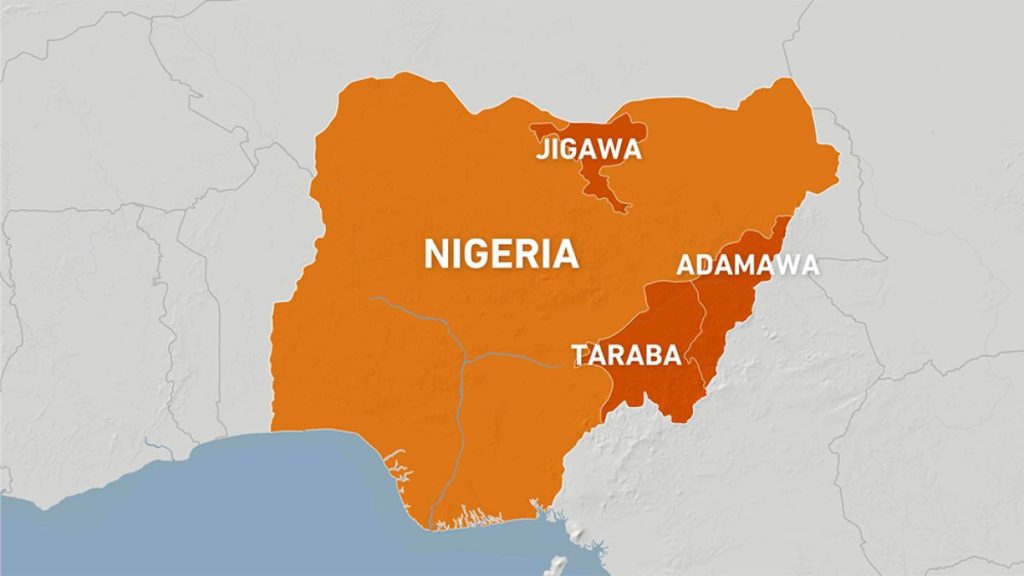Heavy rains have caused severe flooding in Nigeria, with at least 49 people killed and thousands displaced in the northeast. The National Emergency Management Agency has reported that three states – Jigawa, Adamawa, and Taraba – have been particularly hard hit, with over 41,000 people displaced. This comes on the heels of the worst flood in more than a decade in 2022, which resulted in over 600 deaths, 1.4 million people displaced, and vast amounts of farmland destroyed.
As the rainy season is entering its peak, officials are increasingly worried about the situation. The heavy rains have not only led to loss of lives and displacement of people but have also caused significant damage to agricultural land, affecting over 693 hectares of farmland. This poses a significant challenge to the country, which is already grappling with double-digit inflation fueled by high food prices. Farmers in the northeast are abandoning their farms due to repeated attacks by armed individuals, further exacerbating the food security situation in the country.
Officials are bracing for further destruction as the rainy season is yet to peak, with September and October still to come. The Jigawa Emergency Management Agency has expressed concerns about the increasing rain and the potential for more harm as the season progresses. While the government has constructed 110km of embankments to mitigate the flooding, the ongoing impact on lives and property is diverting government resources that could have been used for development projects. A total of 31 out of the country’s 36 states have been deemed at risk of high flood this year, highlighting the widespread nature of the crisis.
The government has warned about the potential for high tides in the upper countries of the River Niger, which could further exacerbate the flooding in Nigeria. NEMA spokesperson Manzo Ezekiel has highlighted the challenges posed by external factors that are flowing towards Nigeria, contributing to the severe flooding. Despite efforts to prepare for and anticipate the situation, the extent of the damage caused by the floods is straining the country’s resources and capabilities.
The situation in Nigeria underscores the urgent need for effective disaster preparedness and response mechanisms to mitigate the impact of natural disasters such as flooding. As the effects of climate change continue to manifest in the form of extreme weather events, countries must prioritize resilience-building measures to protect vulnerable populations. The ongoing challenges faced by Nigeria in managing the floods necessitate collaborative efforts at both national and international levels to address the root causes and provide support to those affected. The government and relevant stakeholders must work together to strengthen infrastructure, improve early warning systems, and implement sustainable solutions to reduce the risk of flooding in the future.













